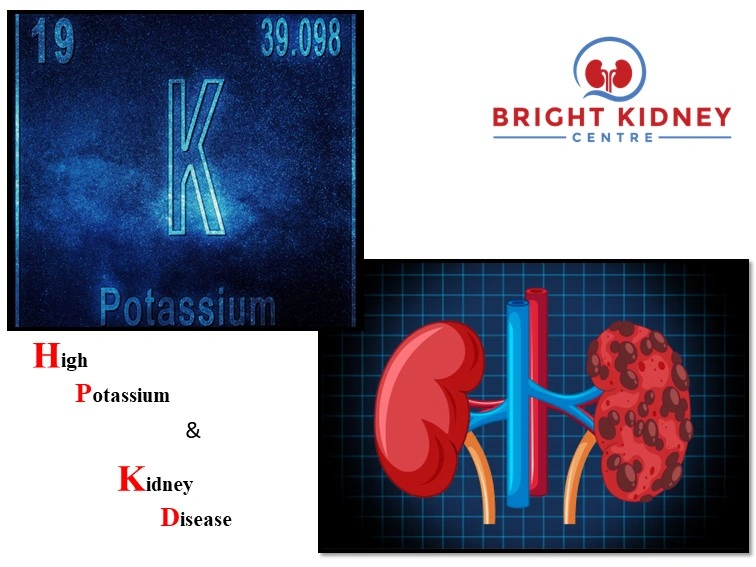High potassium levels in the body do not show any warning signs or symptoms. Symptoms if manifest are often nonspecific – such as weakness, nausea, and heart palpitations. Therefore, hyperkalemia or high potassium levels can lead to serious heart problems and sudden death.
Prevalence of Hyperkalemia
- In general, 2 to 3 percent of the general population may have this condition – and the numbers can be higher in hospitalized patients.
- The risk for hyperkalemia is higher in chronic kidney disease patients.
- More than 50% of predialysis chronic kidney disease (CKD) patients may develop hyperkalemia.
- People with diabetes mellitus and heart failure may also develop this condition.
Hyperkalemia Causes
- The major cause is chronic kidney disease.
- Use of dietary supplements high in potassium
- Consuming foods having excess potassium
- Medications (used to treat high blood pressure)
Hyperkalemia can be acute or chronic:
Acute – This type occurs within a few hours or days and requires emergency treatment.
Chronic – It develops periodically over weeks or months, persists, and requires ongoing patient management.
What happens when you have high potassium levels?
If you develop excess potassium levels in your body, your kidneys may not be able to remove it all. Therefore, potassium builds up in the blood. It can happen when you develop chronic kidney disease. Excess potassium in the blood can damage your heart, and nerves and lead to palpitations and heart attacks. Many people don’t know they have excess potassium levels because they don’t experience any symptoms.
Complications of Hyperkalemia
Severe hyperkalemia can cause life-threatening complications – which may lead to sudden heart attacks. Even mild hyperkalemia over time can gradually damage your heart and may lead to heart failure and heart attacks.
Dangerously high levels of potassium can suddenly cause life-threatening symptoms such as
- Irregular, fast, or fluttering heartbeat (Arrhythmia)
- Numbness in the limbs or muscle weakness
- Heart palpitations
- Chest pain
Bottom Line
People who develop chronic kidney disease are most likely to develop hyperkalemia. Those who already have CKD, but are not on dialysis will gradually develop high potassium levels.
Periodic check-ups, follow-up care, and management can help prevent severe complications. A simple routine blood test can help detect high levels of potassium. The test is usually included in the basic metabolic panel that checks for kidney function and diabetes. Abnormally high potassium levels can cause abnormal heartbeats and palpitations and require immediate medical care.
If you have high blood sugar levels (diabetes) and high blood pressure – the two potential risk factors for kidney disease, you should consult a nephrologist for a screening test. Timely detection of kidney disease can help prevent all types of complications associated with kidney disease including high levels of potassium.

Leave a Reply